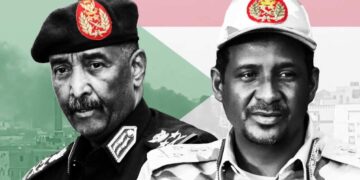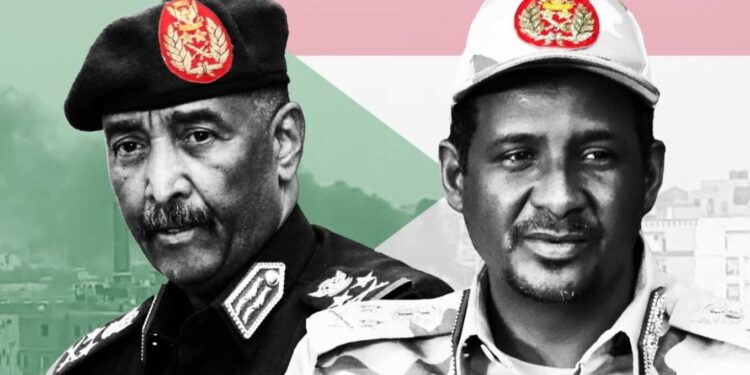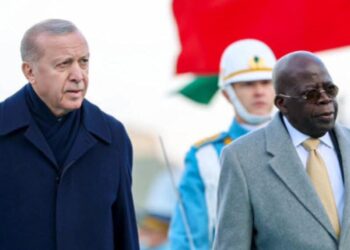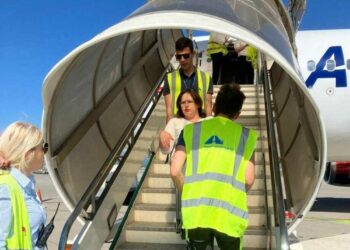Residents in the capital Khartoum reported sporadic fighting between Sudan’s warring factions on Sunday, despite the hopes raised by a week-long ceasefire deal brokered by Saudi Arabia and the U.S.
The agreement, signed in Jeddah, is scheduled to commence on Monday evening and includes an internationally-supported monitoring mechanism as well as provisions for humanitarian aid delivery.
Despite multiple failed ceasefire attempts, the Jeddah deal represents the first truce agreement signed by both sides following negotiations.
However, analysts are sceptical about the ability of army chief Abdel Fattah al-Burhan and RSF commander Mohamed Hamdan Dagalo, also known as Hemedti, to enforce the ceasefire on the ground.
Notably, neither leader attended the Jeddah talks and both have previously expressed their pursuit of victory in the conflict.
Since the onset of the war on April 15, approximately 1.1 million people have been displaced, either within Sudan or to neighbouring countries, resulting in a severe humanitarian crisis with the potential to destabilize the region.
Those remaining in Khartoum are enduring the challenges of widespread looting, a collapse in essential services, and dwindling supplies of food, fuel, power, and water. Witnesses reported clashes in central and southern Khartoum on Sunday.
Safaa Ibrahim, a 35-year-old resident of Khartoum, expressed her hope that the deal could bring an end to the conflict, stating, “We want to return to normal life and safety.
Al-Burhan and Hemedti have to respect people’s desire for life.” However, doubts persist regarding the implementation of the ceasefire.
The Jeddah agreement stipulates the formation of a committee consisting of three representatives from each warring party, along with three representatives from Saudi Arabia and the U.S., to oversee the ceasefire.
The conflict initially erupted in Khartoum over disagreements about the generals, who seized power in a 2021 coup, signing up for a transition towards elections under a civilian government.
Burhan and Hemedti, who have occupied top positions on Sudan’s ruling council since the ousting of former leader Omar al-Bashir in 2019, focused the Jeddah talks on facilitating aid and restoring essential services.
Further negotiations will be required to address the removal of forces from urban areas and establish a lasting peace agreement with civilian involvement.
Mohamed Hamed, an activist in Khartoum, highlighted the urgent need for the truce and the opening of humanitarian corridors, as the health situation continues to deteriorate.
A U.N. bulletin documented 34 attacks on healthcare during the conflict, and reports indicate that looting of humanitarian supplies and assaults on health facilities persist despite commitments made in Jeddah to protect aid supplies and civilian infrastructure.
Senior army general Yassir al-Atta affirmed that efforts were underway to remove the RSF from residential areas such as homes, schools, and hospitals.
The conflict has trapped millions of civilians, with the army employing airstrikes and shelling to target RSF forces that have embedded themselves in residential areas since the early stages of the fighting.
Regarding calls for civilian arming by some tribal leaders, Atta stated that while it was not necessary, individuals under attack in their homes should have the right to act in self-defence.
He added, “Let them arm themselves to protect themselves, that is a natural right.”
The conflict has also sparked unrest in other parts of Sudan, particularly in the western region of Darfur.
According to the World Health Organization, at least 705 people have been killed and 5,287 injured. However, the true death toll is believed to be significantly higher.



































